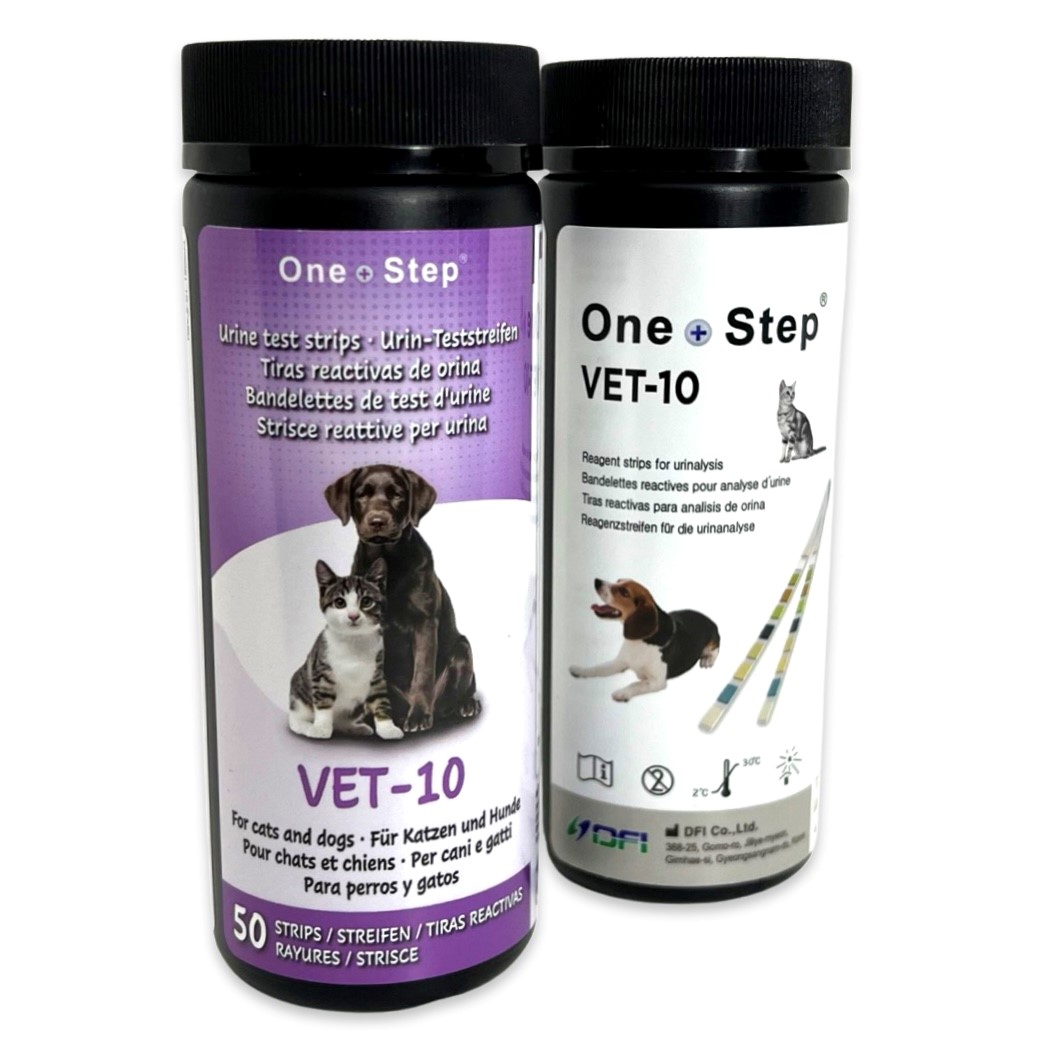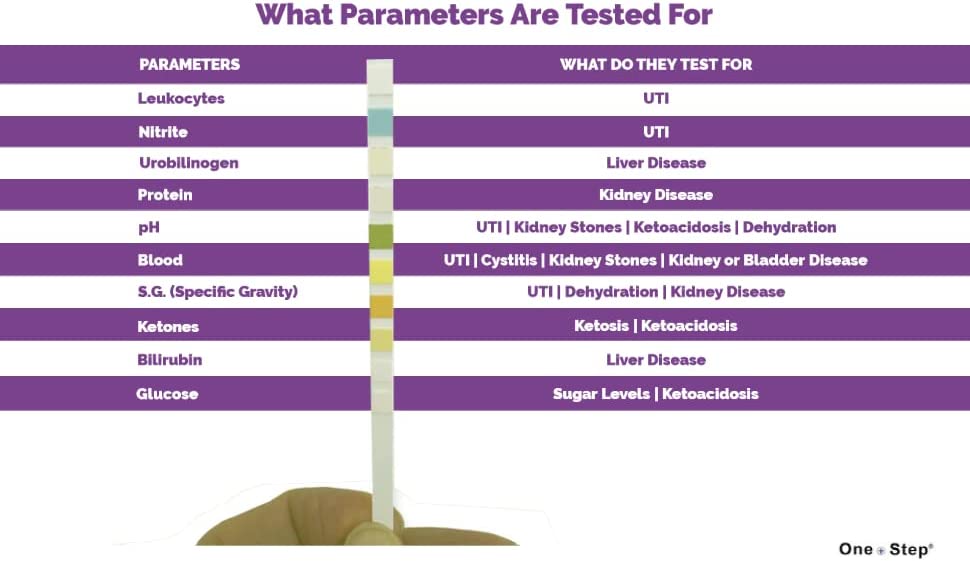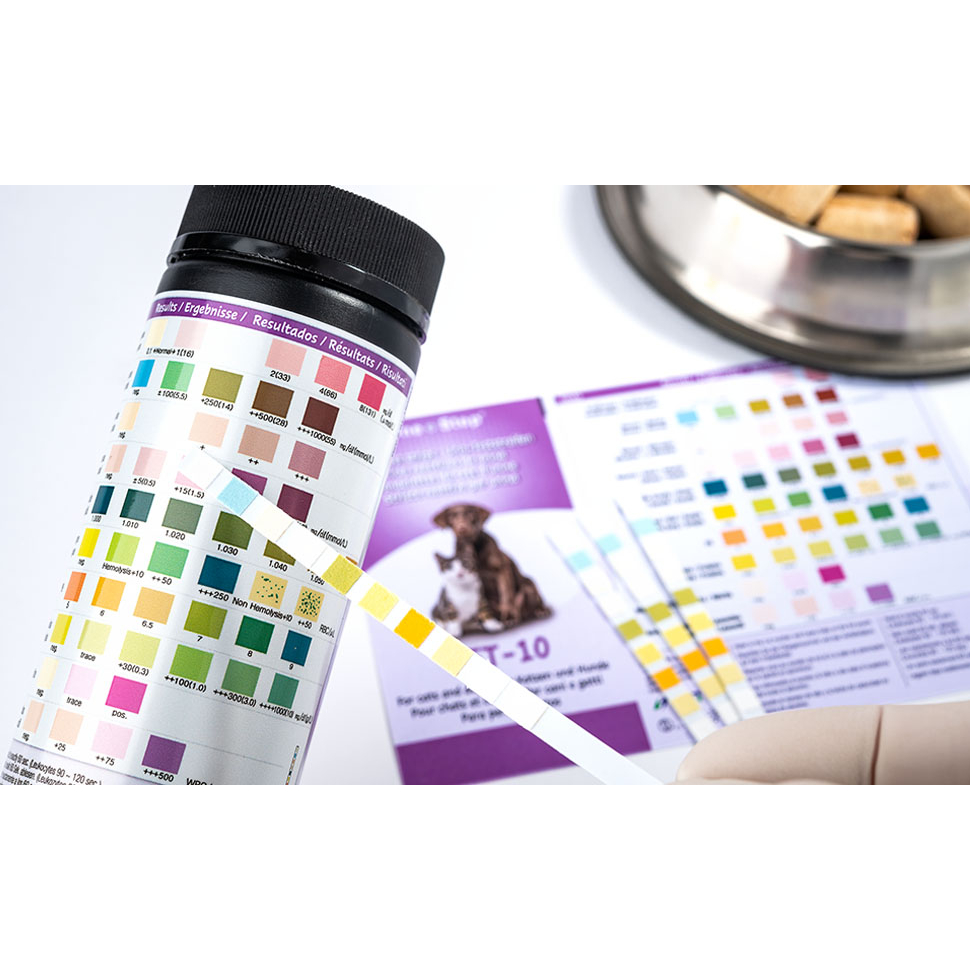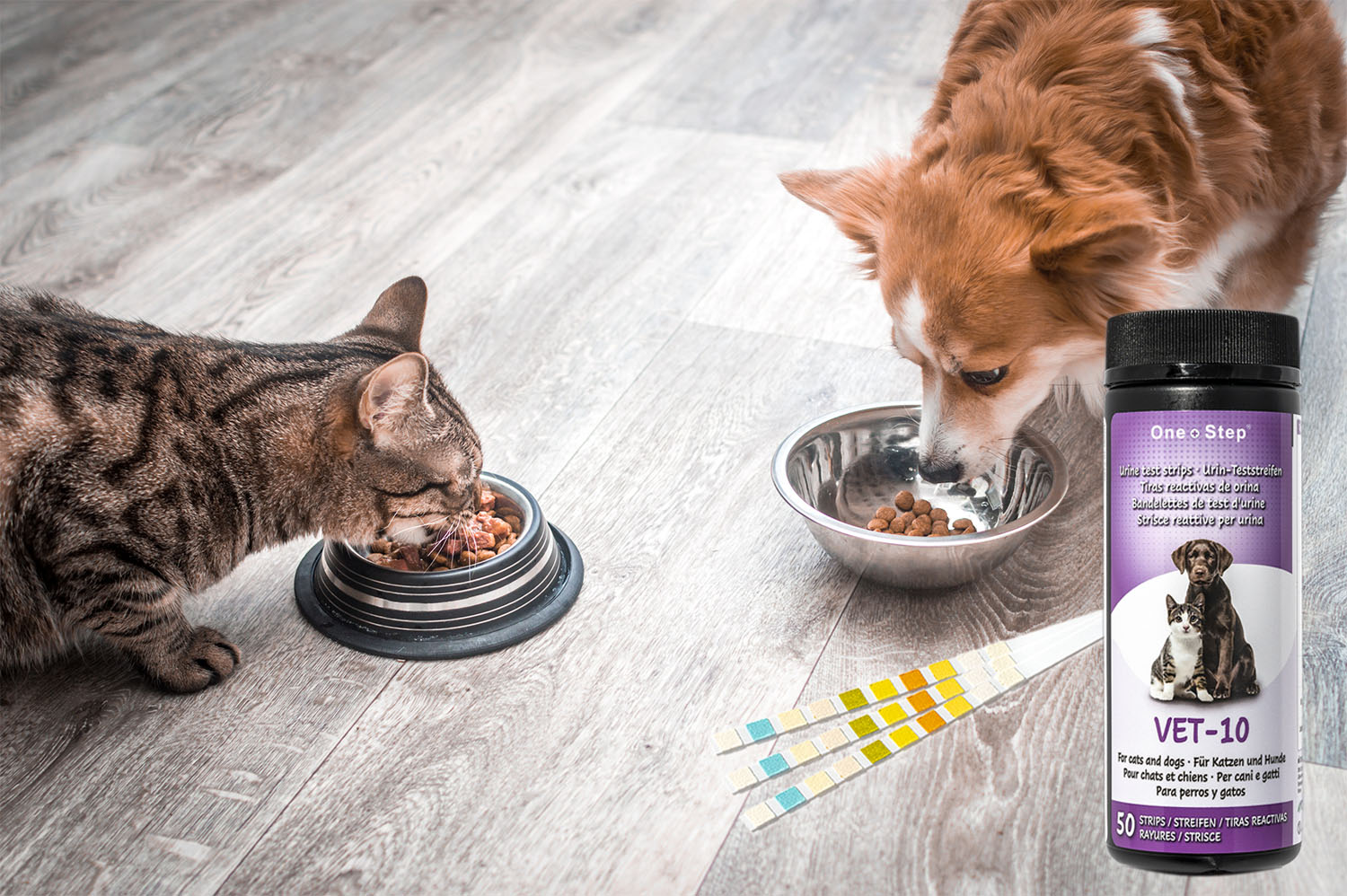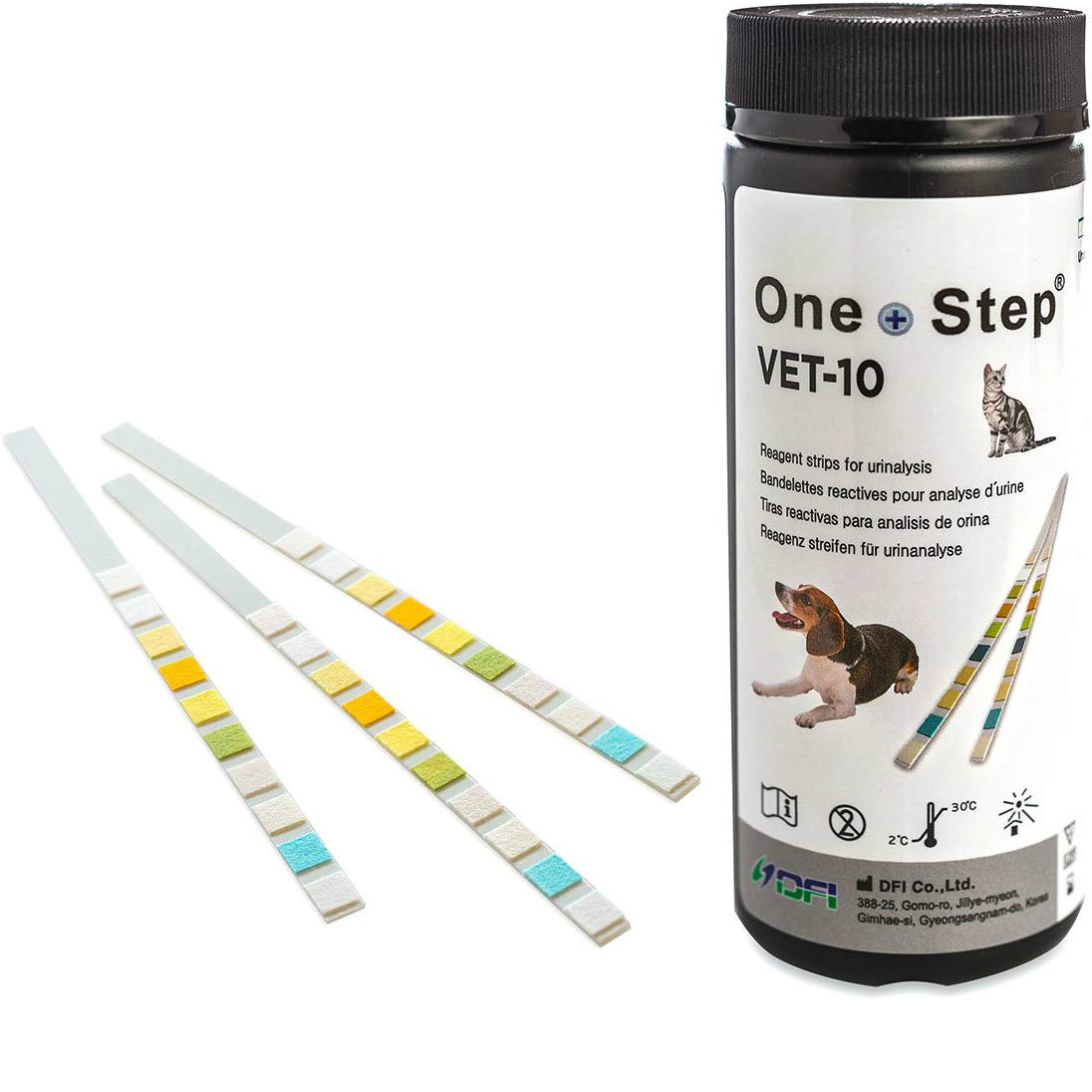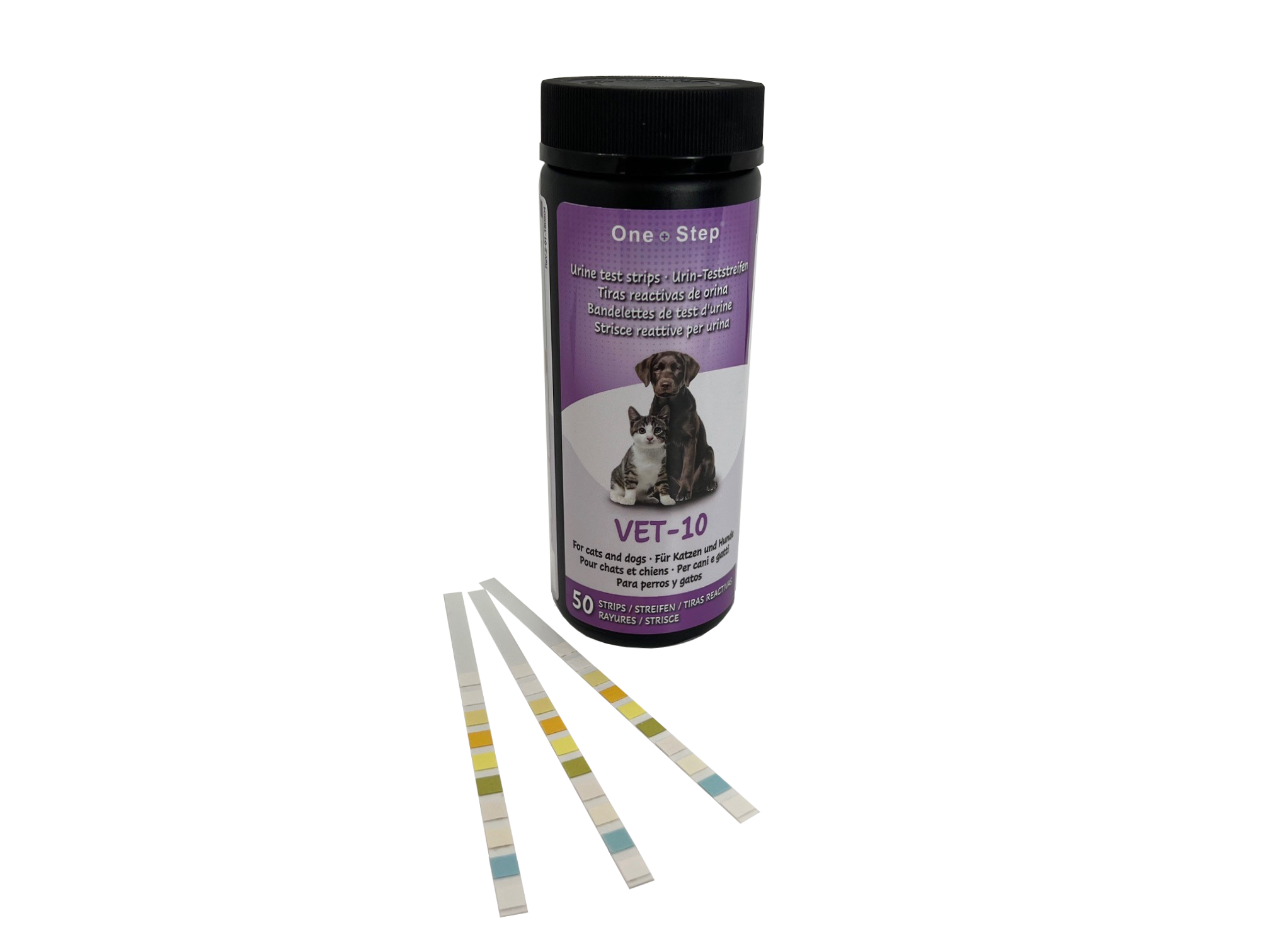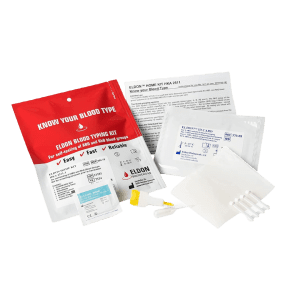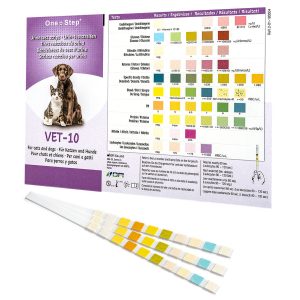One Step Pet Urine Test Strips | Cat, Dog, Vet | 50 & 100 Strip Tubs
$15.99 – $17.49 (Excl. Sales Tax)
Description
Pet Urine 10 Parameter Test Strips
Our One Step Veterinary Pet Urine Test Strips are specifically designed for testing the urine of animals, including cats and dogs. As urine is the end product of a filtering process that removes waste products and metabolic end products from your pet’s blood, much can be learned about your pet’s health by evaluating several aspects of the urine.
These tests will check 10 key parameters which will give an excellent indication of your pet’s overall health and they are identical to the urine tests that your vet would use. It is important that you use specific animal urinalysis strips such as these rather than urinalysis tests that are designed for human use, because the parameters are different.
The test can check the following parameters:
- pH: The pH level indicates the acidity of the urine. In healthy pets, urine pH should be in the 6.0 to 6.5 range.
- Specific gravity: This is a measure of your pet’s urine concentration, which is a measure of kidney function. A wide range of USGs can be encountered in healthy animals – 1.001 to >1.075 for dogs and 1.001 to >1.085 for cats – although values encountered typically for normally hydrated individuals are often closer to 1.015 to 1.045 for dogs, and 1.035 to 1.060 for cats. It is important to note that any USG value could be considered ‘normal’ in a patient, depending on certain other factors, including the patient’s hydration status. In healthy animals, urine concentration can change substantially over time, and 2 to 3 fold variations have been observed within 2 hours in some dogs. Cats typically produce more highly concentrated urine than dogs, but similar variation might be expected for normal cats.
- Protein: On a dipstick test, protein should not be routinely found in urine. A positive test for protein in urine may be an indication of a bacterial infection, kidney disease or blood in urine.
- Sugar: Sugar should not be detected in urine. The presence of sugar in urine may be a red flag for underlying Diabetes mellitus.
- Ketones: Ketones are abnormal byproducts produced by your pet’s cells when they do not have an adequate energy source. If your pet tests positive for ketones in its urine, a medical work up for Diabetes Mellitus will be performed.
- Bilirubin: Bilirubin is the yellow-staining breakdown product of hemoglobin found in red blood cells. Bilirubinuria (bilirubin in urine) is an abnormal finding and indicative that red blood cells in your pet’s blood stream are being destroyed at a higher rate than normal. It can be found in pets with liver disease and autoimmune diseases. Remember, that pets with blood in their urine from a bladder infection can falsely stain the bilirubin pad on the dipstick causing a false concern for a more serious liver problem.
- Blood: The dipstick can identify red blood cells or other components of the blood, like hemoglobin or myoglobin, that are present in your pet’s urine. Blood in the urine must be investigated further by microscopic evaluation of the urine. Blood in the urine may be indicative of an infection, inflammatory problem or stones in bladder or kidney.
- Leukocytes: The level of Leukocytes, also called white blood cells, is ideal when few or none are found in urine. When more are present, it can mean your dog or cat has a bacterial infection.
- Urobilinogen: Urobilinogen is a breakdown of hemoglobin in your dog’s red blood cells. A small amount in your dog’s urine is normal. Abnormal levels of urobilinogen can mean your dog has hemolytic anemia or gallstones.
The strips also detect Nitrites. However, this parameter is only relevant for certain animals.
If the urine test shows positive for any of the parameters, then it is recommended that you make an appointment with your vet.
How To Use
In order to obtain accurate results, the urine collection, storage and handling must be sterile and follow standard procedures. The dipstick analysis should be performed as soon after collection as possible (ideally within 30 minutes of collection) and the sample should be well mixed prior to testing. If for some reason the test cannot be performed immediately, the sample may be covered and refrigerated. It should be allowed to return to room temperature prior to testing. The dipsticks should be stored in the original airtight container to maintain reagent reactivity.
The procedure must be followed exactly to achieve reliable results. Do not compare strips with colour chart before the strip is dipped in urine.
- Dip the test strip for 2 seconds
- Wait for 60 seconds
- Read the test results
Please Note: Once opened you must use the test strips within 30 days. Please make sure that you ensure the pouch is fully sealed straight after you remove the test strip. This will help to ensure the test strips do not deteriorate before there expected time after opening.
Reviews
There are no reviews yet.
Only logged in customers who have purchased this product may leave a review.
